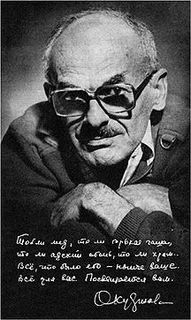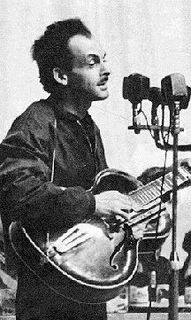Martin Lubenov Orkestar
At the age of only 27 years, Martin Lubenov is already among the top Balkan-accordionists. Comparable to his famous colleague Peter Ralchev, Martin Lubenov very early found his own style. With breathtaking virtuosity and playful elegance he combines Balkan Roma music with shades of swing, modern jazz, tango nuevo, salsa and musette and, doing so, pays honour to it like Astor Piazzolla did to tango and Richard Galliano did to musette. In Vienna, his adopted hometown, he follows up this approach with his unorthodox Balkan quartet Orfej. With ideas for composition and arrangement prepared for a long time past, he returned to Sofia last autumn in order to form his “crack group”.
The Martin Lubenov Orkestar is recruited from the most famous Roma musicians in Bulgaria whose reputation partly well exceeds the Roma scene. Mainly thanks to bands from the north of Spain / the south of France like the Gypsy Kings the Roma songs’ unmistakable soul became world-famous. In the case of the Martin Lubenov Orkestar it never topples over to kitsch and complaisance – using weird arrangements full of experimental jazzlines, powerful brass sounds, marrying salsa to Balkan brass in an unpretentious way, with Lubenov’s frisky tango and gypsy-swing quotations as well as Nikolai Antov’s and Nenad Vasilic’s brilliant guitar- and bass-backings and soli.

Martin studied classical music and jazz in Sofia and Vienna. His roots in the vibrating ground of balkan wedding music kept him from becoming an “academic” musician. And fortunately his musical education helped him quite soon to outgrow popular music, to which a lot of Roma musicians on the Balkans are confined.
Five years ago Martin Lubenov moved to Vienna in order to study and soon became a link between the music of Yugoslav and Macedonian communities and the Central-European folk and world music scene. Fast his talent got around and numerous musicians and bands invited him to collaborate, like for example the Sandy Lopicic crkestar. In addition to this, he has been instrumentalist and arranger for the Jony Iliev Band in Bulgaria.
The Martin Lubenov Orkestar is recruited from the most famous Roma musicians in Bulgaria whose reputation partly well exceeds the Roma scene. Mainly thanks to bands from the north of Spain / the south of France like the Gypsy Kings the Roma songs’ unmistakable soul became world-famous. In the case of the Martin Lubenov Orkestar it never topples over to kitsch and complaisance – using weird arrangements full of experimental jazzlines, powerful brass sounds, marrying salsa to Balkan brass in an unpretentious way, with Lubenov’s frisky tango and gypsy-swing quotations as well as Nikolai Antov’s and Nenad Vasilic’s brilliant guitar- and bass-backings and soli.

Martin studied classical music and jazz in Sofia and Vienna. His roots in the vibrating ground of balkan wedding music kept him from becoming an “academic” musician. And fortunately his musical education helped him quite soon to outgrow popular music, to which a lot of Roma musicians on the Balkans are confined.
Five years ago Martin Lubenov moved to Vienna in order to study and soon became a link between the music of Yugoslav and Macedonian communities and the Central-European folk and world music scene. Fast his talent got around and numerous musicians and bands invited him to collaborate, like for example the Sandy Lopicic crkestar. In addition to this, he has been instrumentalist and arranger for the Jony Iliev Band in Bulgaria.

 The past year was a good one for dictators -- unfortunately. None of the most serious offenders lost his job. Competition for the Top 10 Worst of the Worst was so heated that two dictators who made last year's list were nudged off -- Fidel Castro of Cuba and King Mswati III of Swaziland -- even though their actions were as harsh as the year before.
The past year was a good one for dictators -- unfortunately. None of the most serious offenders lost his job. Competition for the Top 10 Worst of the Worst was so heated that two dictators who made last year's list were nudged off -- Fidel Castro of Cuba and King Mswati III of Swaziland -- even though their actions were as harsh as the year before. 





